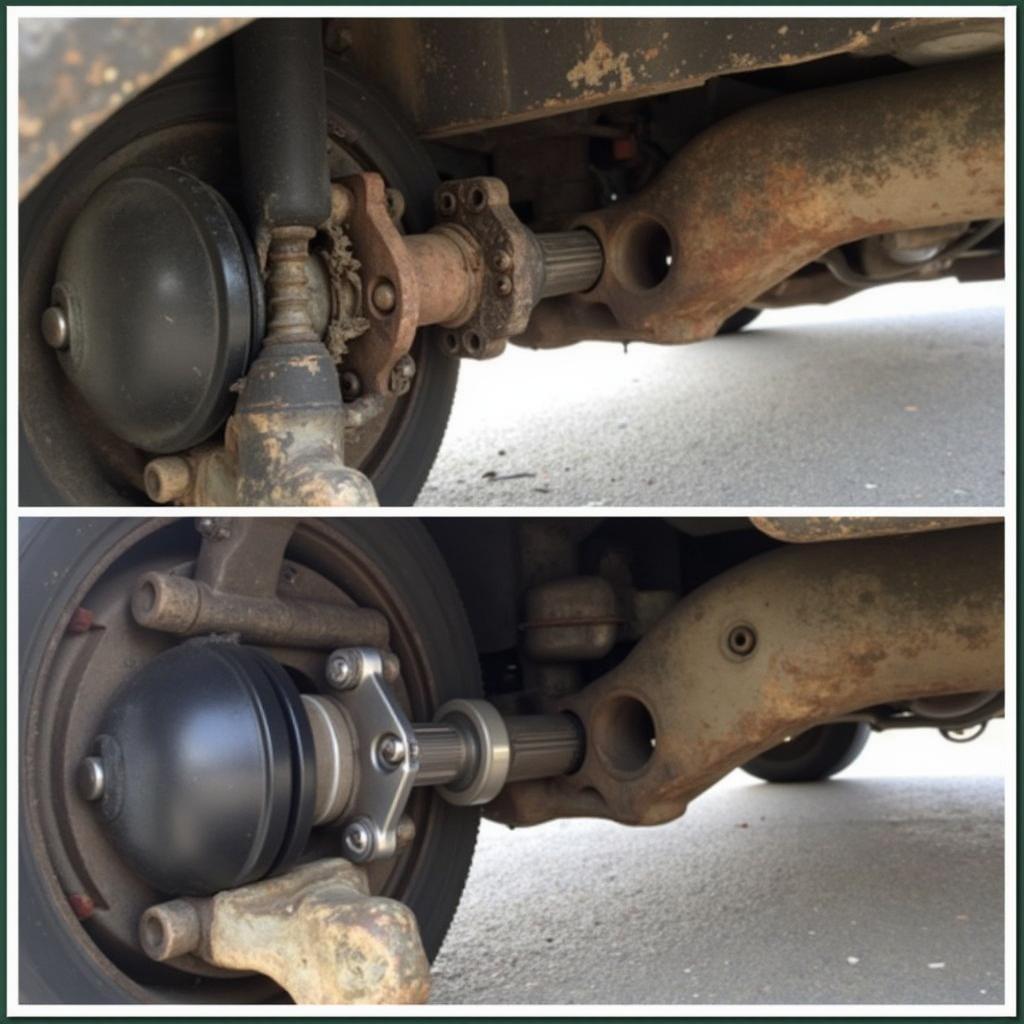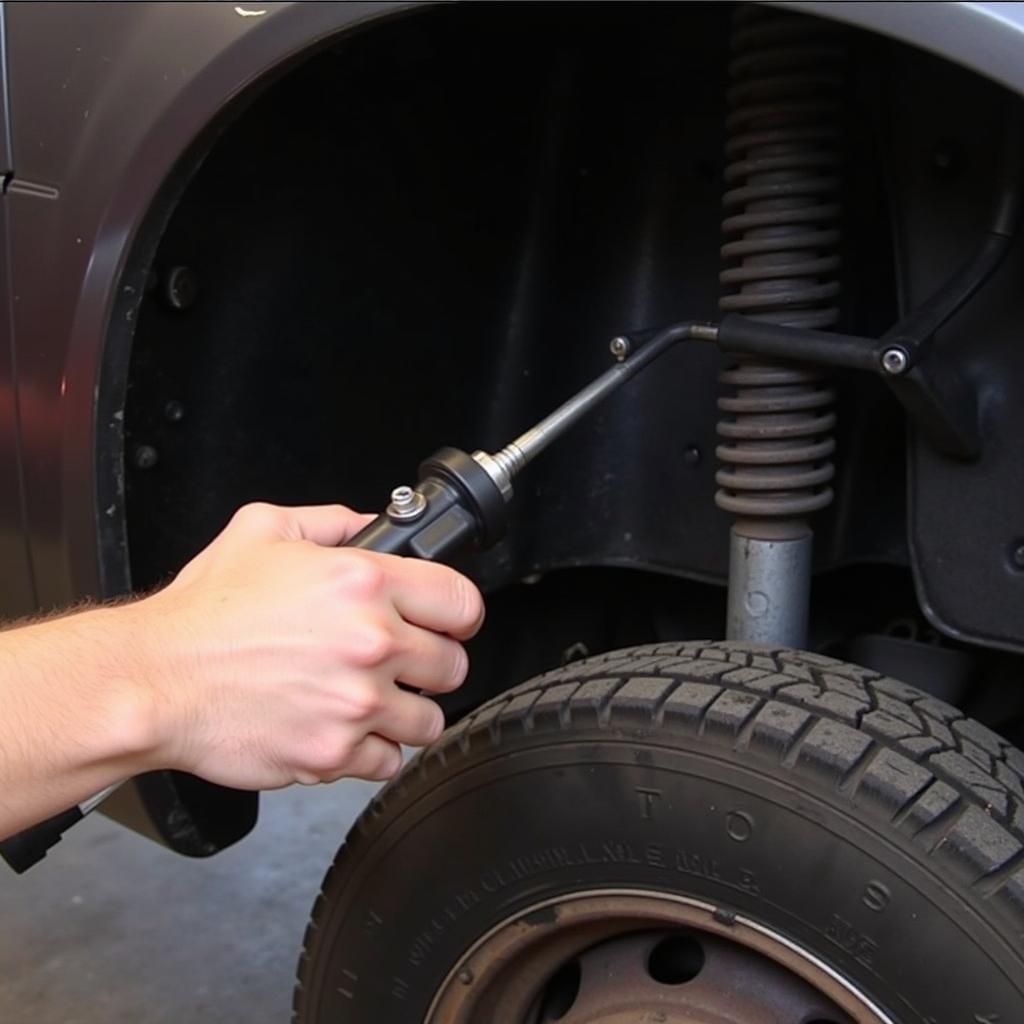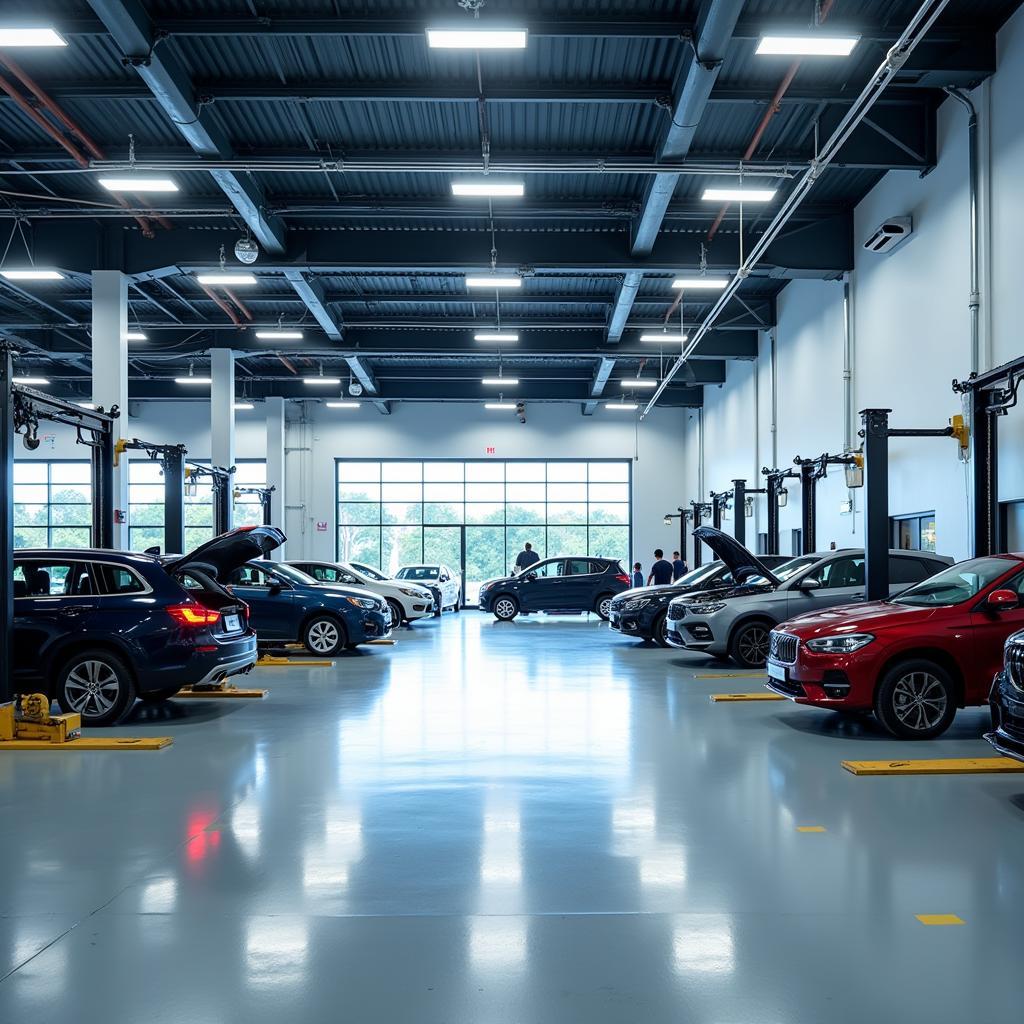Car Greasing Service: What You Need to Know to Keep Your Vehicle Running Smoothly
Car Greasing Service is an essential part of vehicle maintenance that often gets overlooked. Yet, this simple service can significantly impact your car’s performance, longevity, and safety. Just like engine oil keeps your engine running smoothly, grease lubricates the moving parts of your vehicle’s suspension, steering, and drivetrain, minimizing friction and wear. This article delves into the ins and outs of car greasing service, covering everything from its importance and benefits to the frequency and cost.
 Car Chassis Lubrication Points
Car Chassis Lubrication Points
Why is Car Greasing Service Important?
Your vehicle comprises numerous moving metal parts that work together to ensure a smooth and safe ride. Over time, these metal components rub against each other, causing friction that leads to wear and tear. Without proper lubrication, this friction can cause several problems, including:
- Premature wear and tear: This can lead to costly repairs or even component failure.
- Increased friction: This can reduce fuel efficiency and performance.
- Noise and vibration: A squeaking or clunking sound when driving can indicate inadequate lubrication.
- Steering and handling issues: Lack of lubrication can make steering stiff and less responsive.
 Worn Out Ball Joint vs. Greased Ball Joint
Worn Out Ball Joint vs. Greased Ball Joint
What are the Benefits of Regular Car Greasing Services?
Regular car greasing service offers several benefits, including:
- Extended lifespan of parts: Proper lubrication reduces friction and wear, significantly prolonging the life of your vehicle’s components.
- Improved fuel efficiency: Reduced friction translates to less energy wasted, leading to improved gas mileage.
- Enhanced performance: Well-lubricated parts move more freely, contributing to a smoother, more responsive driving experience.
- Reduced noise and vibration: Grease dampens the noise and vibrations caused by metal-to-metal contact.
- Safer driving: Properly lubricated steering and suspension components are crucial for optimal vehicle control and safety.
How Often Does My Car Need Greasing?
The frequency of car greasing service depends on several factors, including:
- Vehicle make and model: Consult your owner’s manual for manufacturer-recommended service intervals.
- Driving conditions: Frequent driving in harsh conditions such as extreme temperatures, dusty environments, or off-road terrains necessitates more frequent greasing.
- Driving style: Aggressive driving with frequent acceleration and braking can also necessitate more frequent greasing.
As a general rule, it’s advisable to have your car greased every 3,000-5,000 miles or with every oil change.
What Does a Car Greasing Service Entail?
A typical car greasing service at a reputable service center will usually involve:
- Inspection: A technician will inspect your vehicle’s undercarriage to identify the lubrication points and assess their condition.
- Cleaning: They will clean the grease fittings to prevent dirt and debris from contaminating the fresh grease.
- Lubrication: Using a grease gun, the technician will apply the appropriate type and amount of grease to each lubrication point.
- Wipe-down: Excess grease will be wiped away to prevent it from attracting dirt and grime.
 Mechanic Applying Grease to Car Suspension
Mechanic Applying Grease to Car Suspension
Choosing the Right Grease for Your Car
Using the correct type of grease is vital for effective lubrication. Different greases have varying properties suited for specific applications. Factors to consider when selecting grease include:
- Viscosity: This refers to the grease’s thickness or resistance to flow.
- Additives: Various additives are incorporated into grease to enhance its properties, such as anti-wear agents, corrosion inhibitors, and extreme temperature resistance.
Always consult your owner’s manual or a trusted mechanic to determine the suitable grease type for your vehicle.
Conclusion
Car greasing service is a small investment that yields significant returns in terms of vehicle performance, longevity, and safety. By adhering to the manufacturer’s recommended maintenance schedule and addressing any unusual noises or handling issues promptly, you can ensure your vehicle remains in optimal condition for years to come. Remember, regular car greasing is a crucial aspect of responsible car ownership.
FAQs
Q: Can I grease my car myself?
While it’s technically possible to grease your car yourself, it requires specific tools and knowledge of lubrication points and grease types. It’s generally recommended to have this service performed by a qualified mechanic to ensure it’s done correctly.
Q: What happens if you don’t grease your car?
Neglecting car greasing can lead to premature wear and tear of suspension and steering components, reduced fuel efficiency, increased noise and vibration, and potential safety hazards due to compromised handling.
Q: How much does a car greasing service cost?
The cost of car greasing varies depending on the vehicle make and model and the service center’s rates. However, it’s generally an affordable service.
Q: How can I tell if my car needs greasing?
Signs that your car may need greasing include squeaking or clunking noises coming from the suspension, stiff steering, and uneven tire wear.
Q: Is it necessary to grease my car if it’s new?
Even new cars require greasing as part of their regular maintenance schedule. Consult your owner’s manual for the recommended service intervals.
Need Help with Car Greasing Services?
Contact us today! We offer comprehensive car greasing services and expert advice on all your vehicle maintenance needs.
WhatsApp: +1(641)206-8880
Email: [email protected]
Our dedicated customer support team is available 24/7 to assist you.

